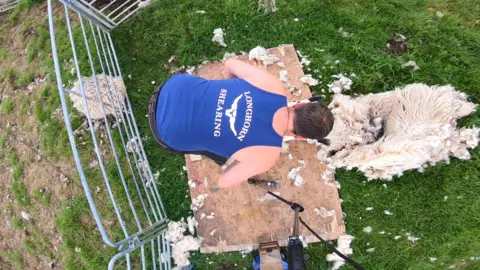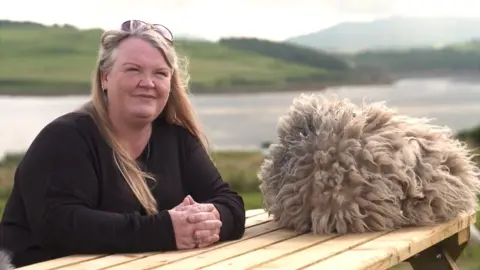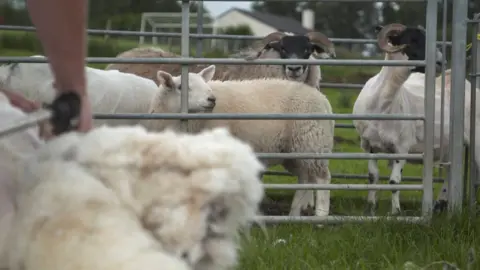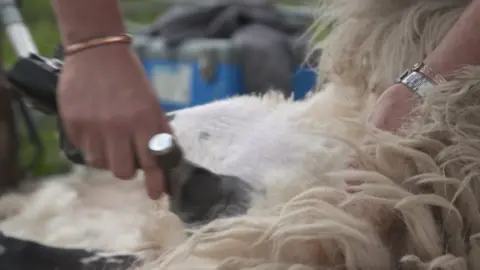Prices for wool 'have gone through the floor'
 BBC
BBCPrices for Scottish wool have fallen dramatically due to the impact of "fast fashion" and the Covid pandemic.
The "wool cheque" - money paid to farmers and crofters for their produce - once covered the cost of a farm's rent or a shepherd's wage for a year.
But over the years, use of mass-produced synthetic fibres have caused a decline in the use of wool in clothing.
Covid has worsened the situation by affecting processing plants and producers' core market - hospitality.
Scottish wool is used for making carpets for cruise ships, hotels and pubs. Since the start of the pandemic last March, the hospitality trade has largely been shutdown.
Sheep are sheared in summer and large bags of wool are taken from farms and crofts for processing.

Shona Macdonald, who has about 120 sheep on her croft in Bernisdale on Skye, said the price for wool had fallen to the lowest she had ever known.
She said: "We sent away six large sacks containing 215kg of wool and we were informed we would be getting £5.22.
"I am well aware of the huge benefits of wool - the amazing properties it has - and how ridiculously undervalued it has become.
"This year has been the lowest yet and it is really upsetting."
The low price has led to some crofters deciding not to even send their wool for processing this year.
Some have been holding on for an increase in prices next year, but a few have chosen to burn or bury the wool, with others opting to put it to use as mulch - or even to provide grip on muddy tracks by laying the fleece down on the ground.
Martin Kennedy, president of NFU Scotland, said there was "huge disappointment" among sheep farmers at the returns for their wool.
He said: "The price has gone through the floor.
"Forty to 50 years ago, the wool cheque would pay the rent for the farm for the whole year or pay a shepherd's wage for a year.
"Now it doesn't pay to get the wool off the sheep's back."

The British Wool Board, the organisation which gathers and sells the wool, said the pandemic had been a "hammer blow" to the industry.
There are only two wool processing plants in the UK and both had to temporarily close as part of efforts to prevent the spread of Covid.
Chief executive Andrew Hogley said: "Essentially, that industry shutdown during the first lockdown so there was no market to sell wool into. That left us with a huge stockpile.
"At the same time, the core market is the carpet trade - carpets that go into the hospitality industry. We all know what has happened to that industry."

Crofters and farmers argue wool could be put to other uses, such as making insulation for homes and other buildings, and have called for more support from the Scottish government.
The Scottish government said farming was "vital" to Scotland's economy and it remained "absolutely committed" to supporting a thriving sector through various grants.
A spokesman said: "This year, we paid out more than £530m to farmers and crofters by 30 June 2021, including lifeline payments to farmers and crofters in Scotland's most remote and rural areas from the Less Favoured Area Support Scheme.
"These payments provide a welcome boost to incomes during these difficult times."
He added: "We are aware of the challenges faced by the British Wool Board, as a result of the pandemic and other impacting factors, which have led to very low wool prices.
"We continue to monitor the situation closely and support those who most need it during these unprecedented times."
